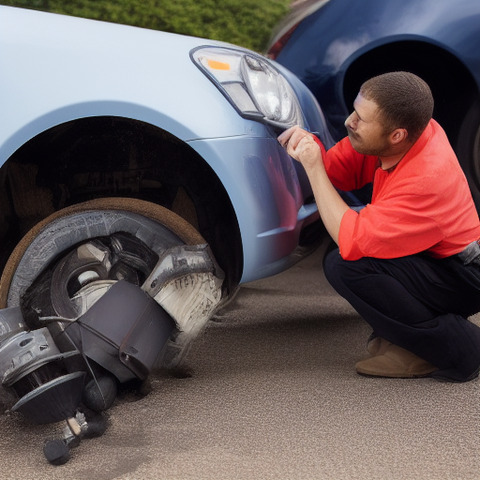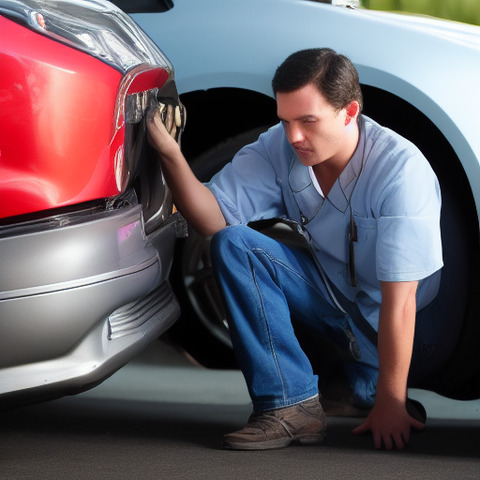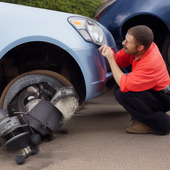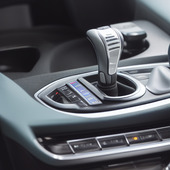How to Diagnose and Fix Your Car's Most Common Problems
In this article, we'll discuss 11 common car problems and their solutions. We'll cover the most common issues, from minor problems like a noisy muffler to more serious problems like a blown engine. We'll also provide tips on how to prevent these problems from occurring in the first place, so you can keep your car running smoothly for years to come.

In this article, we'll discuss 11 common car problems and their solutions. We'll cover the most common issues, from minor problems like a noisy muffler to more serious problems like a blown engine. We'll also provide tips on how to prevent these problems from occurring in the first place, so you can keep your car running smoothly for years to come.
Take your car to a reputable mechanic if you're not sure what's wrong
If you're experiencing car problems, it's important to have them diagnosed and fixed as soon as possible. However, if you're not familiar with auto repairs, it can be difficult to know what's wrong with your car. In this case, it's best to take your car to a reputable mechanic. They can perform a thorough inspection and diagnose the problem, and provide you with a repair estimate.
It's important to choose a mechanic you can trust. Look for someone with a good reputation and positive reviews from previous customers. You can also ask for recommendations from friends and family, or check online for reviews and ratings. Once you've found a reputable mechanic, they can provide you with the expertise and knowledge you need to get your car back on the road.
Read the car manual
It's important to read and understand the user manual that comes with your car. This manual contains valuable information about the operation and maintenance of your vehicle. It can help you diagnose and fix common problems, and can also provide valuable information on how to properly maintain your car.
For example, if you have a problem with your car's brakes, you can refer to the manual to learn how to check the brake pads and fluid levels. By following the instructions in the manual, you can diagnose and fix the problem yourself, rather than taking your car to a mechanic.
Listen to your car when it's trying to tell you something
One of the most common car problems is a noisy muffler. This is usually caused by a hole or crack in the muffler, which allows exhaust gases to escape. When this happens, the car will make a loud, rattling noise when it's idling or accelerating. This is a relatively easy problem to fix, as a new muffler can usually be installed for a few hundred dollars.
Another common issue is a worn-out suspension system. This can cause the car to lean to one side, make a clunking noise when you go over bumps, or feel generally unstable. Worn-out shocks or struts can also cause the car to feel "floaty" or unresponsive when you turn the steering wheel. These are relatively easy problems to fix, as new shocks or struts can usually be installed for a few hundred dollars.
Learn how to change your own oil
One of the most basic, yet important, maintenance tasks you can perform on your own car is to change the oil. Not only is this a relatively easy task that you can do at home, but it's also essential to ensure that your car's engine is well-lubricated and running smoothly. First, locate the oil drain plug (usually located on the bottom of the engine). Use a wrench to loosen the plug, and let the oil drain into a suitable container. Be sure to catch the oil so you can dispose of it properly.
Know what warning lights mean on your dashboard
Warning lights on your dashboard can indicate a variety of issues with your car, from a simple problem like a low oil level to a serious issue like a malfunctioning airbag. It's important to pay attention to these warning lights and understand what they mean, so you can address any issues before they become major problems.
Most cars have a owner's manual that explains what each warning light means. If you don't have the manual, you can usually find information online by searching for the make and model of your car. Additionally, many auto parts stores and repair shops can help you decode warning lights and provide guidance on how to fix the issue.
Keep track of your car's maintenance schedule
One of the most important things you can do to prevent common car problems is to keep track of your car's maintenance schedule. This means regularly checking your oil, changing your air filters, and getting regular tune-ups. By keeping your car in good working order, you can prevent minor issues from becoming major problems down the road.
You can find the recommended maintenance schedule for your car in your owner's manual. If you're unsure how to perform these maintenance tasks yourself, take your car to a reputable mechanic or auto shop. They can help you stay on top of your car's maintenance needs and keep it running smoothly for years to come.
Get an online mechanics course
If you're interested in learning how to diagnose and fix car problems, an online mechanics course can be a great investment. These courses cover a wide range of topics, from basic automotive maintenance to advanced repair techniques. With the right course, you can learn how to diagnose and fix common car problems, and even save money by doing the repairs yourself.
When looking for an online mechanics course, it's important to choose a reputable program that provides comprehensive training. Look for courses that include hands-on training, such as a practical project or internship, and that are taught by experienced mechanics. This will ensure that you receive a well-rounded education and the skills needed to succeed in the field.
Don't ignore car trouble, it will only get worse
The longer you ignore a car problem, the more severe it can become. Ignoring a minor issue, like a faulty brake light, can lead to a more serious problem, like a brake failure. Ignoring a more serious issue, like a loud engine noise, can lead to a costly repair, like a blown engine.
It's important to pay attention to warning signs and address car problems as soon as they arise. If you're unsure of what's causing a problem, bring your car to a mechanic for a diagnostic check. They can identify the issue and provide a solution to keep your car running smoothly.
Consider selling your car if it has a chronic problem
If you have a car with a chronic problem that you can't seem to fix, it may be time to consider selling it. A car with a major issue can be a safety hazard and cost you a lot of money in repairs. If the issue is serious enough, it could even render your car undriveable. In these cases, it's best to cut your losses and move on to a new car that you can rely on.
However, if you do decide to sell your car, it's important to be honest about its condition. Disclose any known issues to potential buyers and be prepared to provide documentation, such as repair receipts or inspection reports, that demonstrate the problem. This will help you get a fair price for your car and avoid any misunderstandings or disputes with the buyer.
Become a good mechanic
When it comes to maintaining your car, it's important to be proactive. You don't have to be a professional mechanic to diagnose and fix common car problems, but having a basic understanding of how your car works can help you identify issues before they become major problems. You can also save yourself a lot of money by doing basic maintenance tasks like checking your oil and air filters, and replacing them as needed.
There are many resources available to help you become a good mechanic, including online tutorials, auto repair manuals, and repair guides. You can also take a class at a local community college or trade school, or even attend an automotive technician training program. With some knowledge and practice, you can become confident in your ability to diagnose and fix common car problems.
Be prepared to spend money on repairs
It's important to remember that car repairs can be expensive. Even small repairs can cost hundreds of dollars, and major repairs can cost thousands. However, not fixing these issues can lead to even more serious problems down the road, which can cost even more in the long run. It's important to prioritize repairs based on the severity of the issue and how much it will cost to fix.
It's also a good idea to budget for regular maintenance, such as oil changes and tire rotations, to prevent small problems from becoming big ones. These maintenance tasks can help keep your car running smoothly and prevent issues from occurring in the first place.

In conclusion, car ownership requires a certain level of knowledge and maintenance to ensure your car runs smoothly and safely. By understanding common car problems and how to diagnose and fix them, you can save time and money in the long run. Remember to take preventative measures to avoid problems in the first place, and always prioritize safety when driving.
If you're unsure about how to handle a car problem, don't hesitate to seek help from a reputable mechanic. With the right knowledge and resources, you can keep your car running smoothly for years to come.
 By: @Alex
(Alex Turner)
By: @Alex
(Alex Turner)
Top Stories









Popular Articles











